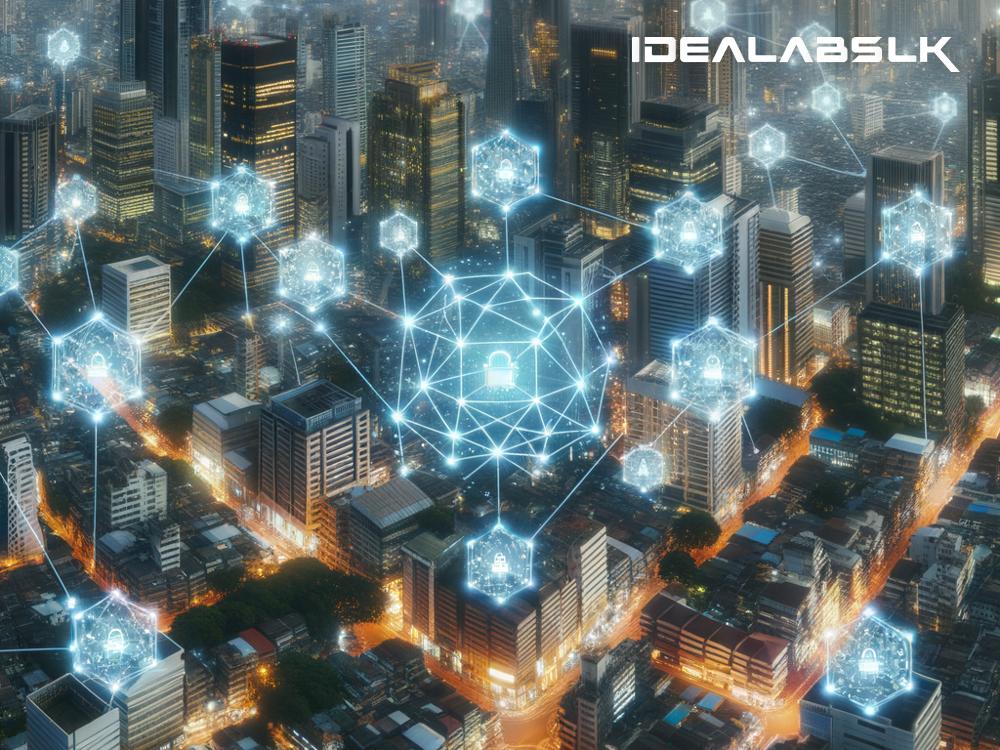Blockchain for Real Estate Asset Management: A Game-Changer
The world of real estate is vast and complex, touching everything from the tiniest studio apartments to sprawling commercial complexes. For years, managing these assets - that is, looking after all parts of real estate investment from buying to maintaining to selling - has been a paperwork-heavy, time-consuming process. Enter blockchain, a technology that's promising to revolutionize how we handle real estate assets. But what exactly is blockchain, and how can it change the real estate game? Let's break it down into simple English.
What is Blockchain?
Imagine a digital ledger that's open for everyone to see. Every time someone makes a transaction, like buying a property, that transaction gets recorded in this ledger. But here's the kicker: once something is written in the ledger, it cannot be changed or deleted. This makes the ledger extremely secure and trustworthy. Blockchain is the technology behind this kind of ledger, and it's the foundation of digital currencies like Bitcoin.
The Challenges of Traditional Real Estate Asset Management
Real estate asset management currently involves a lot of paperwork and middlemen. From property deed records to agreements and transactions, everything is paper-based and stored in separate, often isolated systems. This not only makes the process slow and cumbersome but also increases the chances of fraud. Additionally, accessing real estate information can be challenging, and ensuring that this information is up to date and accurate adds another layer of difficulty.
How Can Blockchain Help?
Blockchain technology can streamline the real estate asset management process in several ways:
-
Transparency and Security: With blockchain, every transaction is recorded permanently and publicly. This means that anyone can trace the history of a property instantly, seeing who owned it, when it was sold, and for how much. This transparency reduces the chances of fraud and makes it easier to trust the information provided.
-
Efficiency and Speed: Blockchain can significantly speed up transactions in real estate asset management. Since the technology operates 24/7, transactions can be completed much faster than traditional methods, which often require working days for processing. This efficiency also comes from eliminating many of the middlemen involved in the real estate process, like lawyers and brokers, saving both time and money.
-
Smart Contracts: These are digital contracts stored on a blockchain. They automatically execute transactions and agreements once certain conditions are met, without the need for human intervention. For real estate, this means rental agreements, sales, and even financing can be managed swiftly and automatically, reducing the potential for disputes and errors.
-
Tokenization: This is a process where the value of a real estate property is turned into digital tokens that can be bought and sold on the blockchain. This makes real estate investment more accessible, allowing people to buy shares in a property much like they would buy stocks. It opens up the market to smaller investors and can increase liquidity in the real estate market.
Real-World Implications
The real-world implications of blockchain in real estate asset management are profound. For starters, it can make the market more inclusive by lowering the barrier for entry. Small investors can get involved in property deals that were previously out of reach. Additionally, the added transparency and security can attract more investors, as the risks associated with fraud and misinformation are reduced.
Blockchain can also empower homeowners and buyers, giving them more control and insight into their transactions. For property managers and developers, the technology can offer real-time data and insights, improving decision-making and operational efficiency.
The Road Ahead
While the potential of blockchain in real estate asset management is immense, it's not without challenges. There are regulatory hurdles to consider, as well as the need for widespread adoption across the industry. However, the benefits are clear, and the momentum is building. Several startups and established players in the real estate sector are already exploring blockchain solutions, and it's only a matter of time before they become more mainstream.
Conclusion
Blockchain technology holds the promise of transforming real estate asset management into a more transparent, secure, and efficient process. Its potential to reduce fraud, speed up transactions, lower costs, and make the market more inclusive could indeed make it a game-changer. As we move forward, embracing this technology could revolutionize the way we buy, sell, and manage real estate, making the process easier and more accessible for everyone involved. The future of real estate asset management is digital, and blockchain is leading the way.

